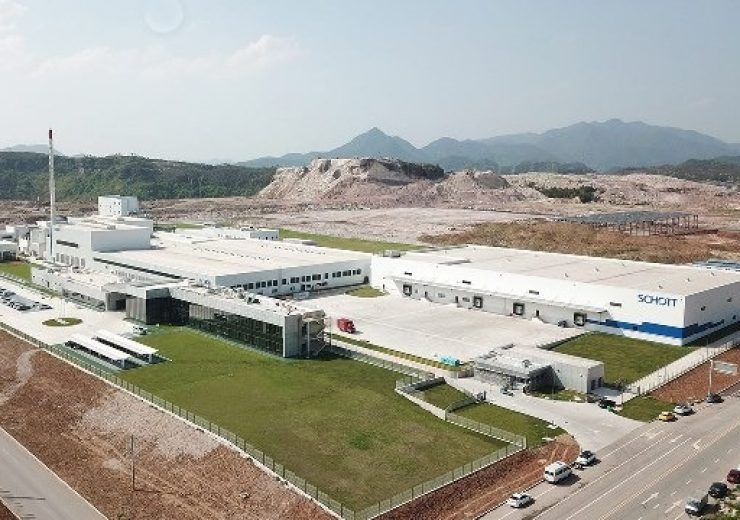The Chinese facility manufactures borosilicate glass tubing suitable to produce vials and syringes for Covid-19 vaccines

Schott’s Chinese facility has an initial capacity of 20,000 tonnes of 5.0 Type I borosilicate glass. (Credit: SCHOTT AG)
Speciality glass manufacturer Schott has officially opened its new glass tubing facility in Jinyun, China.
The facility, which first commenced production at the end of last year, is engaged in the manufacturing of borosilicate glass tubing suitable to produce vials and syringes for Covid-19 vaccines and others.
The company has invested €60m in the new facility, as part of its $1bn investment to expand its global pharmaceutical business.
With an initial capacity of 20,000 tonnes of glass, the new facility is said to serve as a production and supply hub in the region. It is also having a space for further expansion.
Schott management board chairman Dr Frank Heinricht said: “Of course, our glass stands at the very beginning of an ambitious value chain. But it´s one piece of the bigger picture: Turning the vision of “Healthy China 2030” into reality. We’re very proud that it also marks the first time that SCHOTT is melting glass in China.”
Schott produces borosilicate glass under the brand name FIOLA, which is a mostly used material for pharmaceutical packaging.
The highly inert glass enables to protect drugs from undesirable drug-container interactions, thereby serving as a suitable packaging material for life-saving drugs.
Schott stated that more than 90% of all approved Covid-19 vaccines depend on the company’s glass tubing.
The Chinese manufacturing site will help shift from manufacturing the low borosilicate glass (7.0 glass type) to the middle borosilicate glass (5.0 glass type).
Schott tubing business unit executive vice president Dr Patrick Markschläger said: “As the most modern tubing production site worldwide, it is equipped with state-of-the-art manufacturing technology.
“Through our local glass production, we enable a faster and improved supply chain that will subsequently help to improve packaging quality.”
In January this year, Schott announced an investment of €40m to build a second melting tank for pharmaceutical glass tubing at its main plant in Mainz, Germany.
